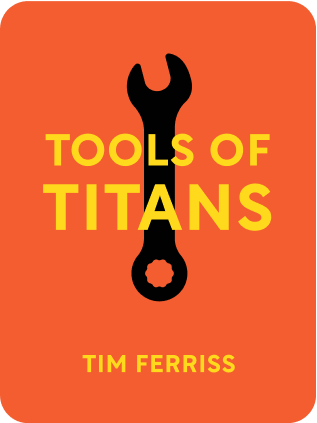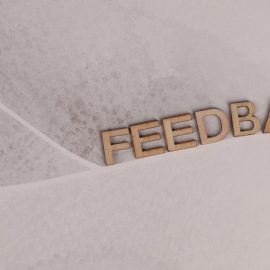

This article is an excerpt from the Shortform book guide to "Tools of Titans" by Timothy Ferriss. Shortform has the world's best summaries and analyses of books you should be reading.
Like this article? Sign up for a free trial here .
Would you say you are happy in your life? What are some things you can do to cultivate a happier, more joyful outlook?
Like anything worthwhile, it takes effort to cultivate a mindset of ongoing happiness. It won’t happen overnight, but it’s definitely under your control to a great extent.
Without further ado, here are five simple practices to help you live a happy life, no matter the circumstances.
Cultivating Happiness
In his book Tools of Titans, entrepreneur and lifestyle guru Tim Ferriss shares advice from interviews with 101 top-performing people from Olympic athletes to ultra-successful entrepreneurs. When he asked them about their take on how to live a happy life, many gave similar answers. Here are some of the most common themes that came up in the titans’ interviews.
1. Be Grateful for Things
One of the most common themes from titans through the entire book was being grateful for life and what it’s given so far. Far from being the cutthroat, take-no-prisoners stereotype of success, the titans tended to reflect on their lives and be thankful for where they are.
Here’s a summary of how people feel gratitude:
- Tony Robbins believes gratitude prevents you from feeling anger or fear. He starts off his morning by meditating on what he’s grateful for.
- Tim Ferriss recommends naming 3 new things you’re grateful for in an end-of-day 5-minute journal. Instead of repeating the same things like your health, consider small things, like an old relationship that really helped you, something great that you saw happen, or something simple that you can see.
- Tim Ferriss also keeps a “Jar of Awesome.” He adds an entry on a slip on a slip of paper whenever something cool happens in a day, and he opens one when he needs an emotional boost. These little wins are easy to forget.
- Author Seth Godin: Why fixate on all the times someone betrayed or rejected you? It makes more sense to keep track of all the times it worked, all the times you took a risk and it worked out. You can control your own narrative, and there isn’t much benefit to being angry and negative all the time.
- Navy SEAL Jocko Willink reads about human suffering, like the My Lai massacre, to be grateful for what he has. Similarly, Youtuber Casey Neistat recommends reading Little Dieter Needs to Fly, a book about a Vietnam prisoner of war that will make you appreciate your cushy life.
- Founder of the Spartan Race, Joe de Sena was inspired to start it after getting fed up with Wall Street. He wanted to suffer in nature and return to a time when he’d just want water, food, and shelter, which would make all his other needs pale in comparison.
- Being grateful for past successes helps you acknowledge that you are capable, instead of fixating on your many failures. This avoids the paralysis from feeling you’re not good at anything.
- If you’re afraid of taking a certain action, reflecting on similar past actions helps you realize the outcome will be good, and it won’t be as painful as you think it is.
- Being grateful for other people inspires a cooperative spirit. You often need other people for success, and thanking past connections helps you seek more connection.
- Neurologically, feeling good about memories positively reinforces the behavioral circuits that produced those memories. For instance, you might be grateful for that one time you reached out to a long lost friend and had a great weekend together, which will encourage you to behave that way again in the future.)
2. Getting Perspective
When you’re in the thick of it, your problems can be all-consuming. Take some time to get perspective—in the grand scheme of things, your problems today probably aren’t a big deal.
Physician BJ Miller gets perspective by looking at the sky. He contemplates how the light from stars that reaches him is ancient, and that by the time he sees the star it may no longer exist. This puts all his little mundane worries into perspective.
Memento mori: multiple titans use a calendar to count down the number of days they have left to live. The number is frighteningly small—someone at age 30 has somewhere around 20,000 days remaining.
- (Shortform note: Writer Tim Urban wrote a popular article noting that by the time you leave your parents’ house for college, you’ve already used up 93% of your in-person parent time.)
Knowing that all things, good and bad, are temporary can help you overcome difficulties. The book offers a few phrases to remember this:
- “This too shall pass”—a Persian adage that applies to both good and bad.
- Chris Sacca: “Tonight, I will be in my bed.”
- “Just note gone”—a mindfulness practice that trains you to notice when something you experience is no more. This can be a breath, a thought, or an emotion. When you learn that all sensations are transitory, then you can overcome even great difficulty and pain, knowing that eventually they too will be gone.
Connecting with others can also put your challenges into perspective: Author Sebastian Junger notes that a feeling of belonging seems to improve mental health. Disasters like 9/11 decrease suicide, violent crime, and symptoms of mental illness. The reason could be that feeling a sense of collective belonging weakens people’s normal psychological terrors.
3. Meditation and Mindfulness
Tim Ferriss says most of his interviewees practice some sort of meditation or mindfulness practice. This reduces anxiety, increases happiness, and makes you more aware of your life.
You don’t have to do it every day. Arnold Schwarzenegger meditated regularly for a year in his early life, and, even though he’s stopped, he continues to see benefits. When presented with problems, he can focus, calm down, disconnect his mind, and tackle each problem one at a time.
A similar behavior is working while listening to a single musical track or album on repeat. This puts your mind into a trance-like state of focus and is similar to mindfulness practice.
4. Empathy
A common emotional irritant is other people. We nurse our grievances with other people and keep reliving how they’ve wronged us.
This is often a biased, inaccurate view. Once you empathize with the other person, you’ll likely stop hating them so much.
- Philosopher Alain de Botton: When dealing with someone who’s upset, ask yourself whether the person has been deprived of basic primal needs. Maybe they haven’t slept well or eaten recently, or they have other problems on their mind. You don’t see a crying baby and think, “that baby hates me and wants to ruin me.”
- It’s silly to blame someone for not understanding you. Most people don’t understand themselves to begin with, and they have a hard time communicating themselves to other people. Plus, you can probably explain yourself better.
- Chef and author of Modernist Cuisine Chris Young: When you give feedback to someone, empathize with their situation. Are you being unfair because you know something they don’t or have a greater scope of understanding?
Empathy has practical benefits. Tech investor Chris Sacca argues that empathy helps you develop better products and solutions for people, since you can see the world through their eyes.
5. Dealing With Negative Emotions
Anxiety. Tim Ferriss poses a question in many of his interviews: “What would you tell your younger self?” The most common response was “relax, don’t get anxious—everything will work out.”
Your ego invites suffering. Tony Robbins suggests that suffering comes from focusing on yourself and your own feelings. If you’re worried about your kids, it’s because you feel you’ve failed your kids, not because you’re genuinely worried about them.
For anything in life, you have three options: change it, accept it, or leave it. It’s not good to want one option but not act on it—like wishing you would change it but not doing anything to change it, or wishing you would leave it but not leaving it.
Stress. Multiple titans have tremendous pressure to perform under the moment—in a sports match, with a critical business problem, or in warfare. They’ve developed thought patterns to keep them calm in high-intensity situations:
- Navy SEALs have a saying about leadership: “Calm is contagious.” People mimic your behavior. If you stay calm, they’ll be calm too. If you panic, they’ll panic too.
- In his response to crises, Matt Mullenweg exemplifies “getting upset won’t help things.”
- LinkedIn founder Reid Hoffman is known for being imperturbable. He’s responded to direct insults with, “I’m perfectly willing to accept that.”
- Chef Sam Kass: Most of success in the kitchen is staying calm. If you’re calm you can figure most things out. If not, things fall apart.
- A titan told a story about meeting boxer Evander Holyfield before one of his big fights. The titan was worried that he was imposing on his pre-fight prep, but Holyfield waved it off. He knew he had done everything he could before the fight to be ready for the fight, and the minutes before a fight wouldn’t change anything.
- Comedian Whitney Cummings had a similar idea before her stand-up performances. She had already put in the hard work 3 months ago; all she was doing the night of a performance was showing up.
Haters. When you try to reach your goals, people will try to drag you down. 10% of people will take anything personally. Expect it and treat it like math—the more presence you have, the more people who will appear to criticize you.
To disarm your critics, pre-empt their criticism. Address counterarguments in your work, or be self-deprecating.
- Tim Ferriss calls himself a “professional dilettante” to disarm critics who might have otherwise called him such.
- To deal with hecklers, comedian Margaret Cho goes the empathy route, trying to understand sincerely why this person is disrupting a performance everyone has paid for and agreed to sit for. Turn the spotlight on them and give them a lot of time. Ask the person the person is with, “Is this person usually like this?” Ask the people around her, “was she like this before the show?” This not only induces shame but might lead to a real genuine connection.
For the thoughtful critics, take time to address them to show you don’t take yourself too seriously. This will decrease the number of real haters.
Anger. A Buddhist saying: “Holding onto anger is like holding a hot coal while waiting to throw it at someone else.”
When feeling anger, don’t suppress it or swat it away. Acknowledge it explicitly. This helps to dissolve the issue.
Choose not to indulge in conflict. Don’t be around people who are constantly in conflict—people who fight with others regularly will eventually fight with you.
Cynicism. Media host Jason Silva notes that being cynical or jaded is like being dead. Nothing impresses you, you feel like you’ve seen everything before, and you see the world through dark lenses.

———End of Preview———
Like what you just read? Read the rest of the world's best book summary and analysis of Timothy Ferriss's "Tools of Titans" at Shortform .
Here's what you'll find in our full Tools of Titans summary :
- The habits and beliefs of 101 people at the top of their game
- Tim Ferriss' list of 17 questions you should ask yourself to challenge your thinking
- How emulating the habits of successful people you look up to can make you successful as well






